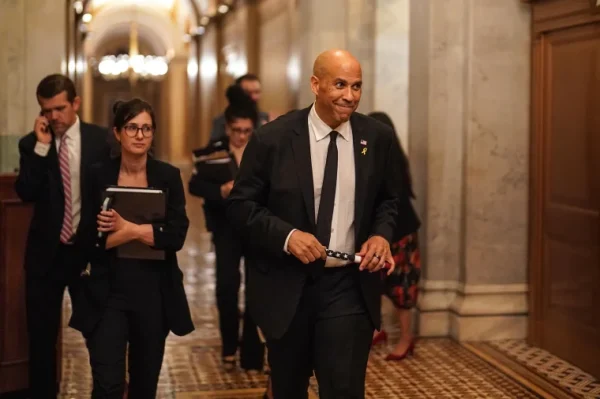Mulvaney Appointment Threatens CFPB
A partisan firestorm was ignited Nov. 24 when Richard Cordray resigned from his position as director of the Consumer Financial Protection Bureau.
The CFPB is a component of the Dodd-Frank Wall Street Reform and Consumer Protection Act of 2010, which Congress passed in the wake of the Great Recession. The CFPB was envisioned to prevent the kinds of cheating and fraud perpetrated by financial institutions that led to the crisis in the first place.
Under Cordray’s leadership, the CFPB caused a number of problems for corrupt banks on Wall Street. It returned $12 billion stolen by banks and credit card companies to the hands of consumers. In a high profile Sept. 2016 case, the CFPB handed Wells Fargo a $100 million fine for opening bank accounts without customers’ knowledge.
Prior to his resignation, Cordray had appointed Leandra English — previously the CFPB’s chief of staff — as deputy director. Under the bureau’s rules, she would have become head of the agency following Cordray’s resignation. However, President Donald Trump also made an appointment to take over from Cordray — his budget director, Mick Mulvaney.
Both Cordray and Trump felt they were within their legal authority to install the new acting director. Cordray pointed to a provision under the Dodd-Frank Act which stipulates that the acting director of the CFPB gets to choose his successor, while the Trump administration cited the Vacancies Reform Act of 1998, which asserts that the president has the right to fill all vacancies. These two competing laws, combined with divisive partisanship, led to a messy situation at the bureau on Monday.
Both English and Mulvaney showed up for work, claiming they were the rightful director. They also sent competing emails to CFPB staff, each urging employees to ignore the other one. Mulvaney helped his case by by toting a large bag of doughnuts, as noted by the The Washington Post.
The doughnuts, unfortunately, were not enough to remedy the situation. English filed a lawsuit in order to block Mulvaney’s appointment. She requested an emergency restraining order against him, citing the Dodd-Frank Act as evidence that she was entitled to the position of acting director.
Trump-nominated judge Timothy Kelly ruled in favor of the president and Mulvaney. He denied the request of the emergency restraining order and ruled that English had not sufficiently demonstrated harm. This ruling means that, until further action is pursued, Mulvaney will remain as the acting director of the CFPB.
This is a complete disaster for Americans everywhere — especially for the most financially vulnerable.
One of the CFPB’s main focuses is payday lenders. These are businesses that set up shop in low-income neighborhoods and push customers into taking out big loans which the payday lenders know cannot be paid back. When the borrowers are unable to repay the loan in time, the lenders slap them with interest rates of up to 300 percent. The CFPB has worked tirelessly to impose new regulations on these types of businesses to thwart their deceptive practices, according to Rolling Stone.
This work done by the CFPB has been crucial in helping Americans, but Mulvaney does not see it that way. Mulvaney has characterized the CFPB as “completely unaccountable federal bureaucracy,” and stated to reporters that if it were within his power to shut it down, he would do so.
This sentiment is shared by many Republicans and their Wall Street allies. Republicans do not want big banks and payday lenders to be held accountable for their actions because these corporations are some of their biggest donors. Mick Mulvaney is more concerned that the CFPB will “trample capitalism” than he is about the deceit and fraud perpetrated by financial institutions.
The most vulnerable people in the U.S. would be better served if lawmakers stopped undermining the CFPB and instead installed a director who will have the concerns of ordinary Americans, not big banks, in mind.




